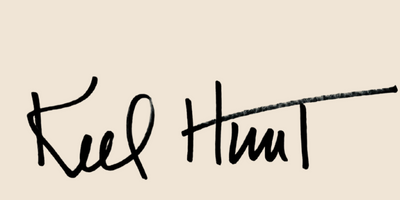'Nashville is on Fire'
/Those four words appeared, in 2018, in Nashville’s glossy pitch-book to Amazon.com, presenting the city’s best case for winning the online retailer’s coveted “HQ2” location.
On one level, the phrase was simply in the ever-hopeful language of the civic booster. ABC’s Nashville had recently revived the city’s celebrity as a music capital, and so our old “Music City” brand was new again, burning white-hot with the kind of positive fire that dazzles.
But I remember thinking, at the time, that the same phrase might carry a double meaning for many others in my hometown now. In the moment, the words brought an echo of recent growth conflicts – too much traffic and congestion, displacement of neighborhoods, even the felling of cherry trees at Nashville’s front door - and of the deepening concern with public administration at the police department.
No one likes to admit it, but this more painful type of fire is gathering intensity now. Regular people are feeling it. Remember that abrupt avalanche of signatures to an online poll concerning the NFL Draft event? And, this summer, the outpouring of feet and voices to City Hall searching for racial justice? Neither of these protest actions sprouted from thin air.
Nashville is still searching for itself. Amazon came, yes, so the city’s fine pitch worked. But how will our city rise to the modern challenge of the other fires that burn? Can we match the hard questions with good answers, too?
Our diverse city has many dimensions to its life, and growth does bring pain. On one hand, there’s the image we broadcast to the world as we compete for jobs and wealth. Then there’s how the city actually works – or doesn’t – for some citizens day to day.
Beneath all of this are the anxieties that fill many hearts now, the type of concerns rarely felt in the clubs and boardrooms of the establishment. Yet we must all live in the one city.
Some folks even speak of leaving the city, either literally by moving away or just avoiding visits to the central business district. Both are cop-outs.
I am reminded of the words of Colonel James Robertson, in 1782, when the beleaguered inhabitants of Fort Nashborough debated whether they should just give up and leave. Attacks by Native Americans had begun soon after the easterners and their flatboats arrived and had not let up. Some in the fraught settlement on the bluff thought it might be best to move on, maybe on to Kentucky or even further away.
“I have never thought of leaving,” Robertson, the co-founder, countered. “When we came, the whole country was in possession only of the buffalo, bear, deer, and all wild animals. There were no Indians living within hundreds of miles of our settlements. Here is the extensive rich country; we shall find no better.”
That was a long time ago, true enough, and obviously we live in a different context now. But currently we have a scary wildness of another sort assaulting our community: This time it’s heedless visitors plus a few selfish bar owners, all oblivious to the coronavirus pandemic, in their refusal to wear simple masks.
The right choice is not to abandon the central city, but to fix it. It’s not only about their liberty, but my health and yours.
My friend Butch Spyridon has a timely column this week over at https://www.tennessean.com/story/opinion/2020/08/27/nashville-resilient-so-lets-work-together-get-through-covid-19/5643736002/
As head of the Convention and Visitors Corp., Butch takes the heat when our mushrooming tourism economy impacts the rest of us. He noted the alarming scenes of partiers jamming downtown sidewalks, threatening public health. We ought, he insists, to be supporting one another much better than this.
“Too many people are pointing fingers of resentment and blame rather than reaching out with compassion and support,” he writes. “How can Nashvillians who rescued senior citizens stranded in the flood now shun masks to save their lives?”
The man makes a good point.
© Keel Hunt, 2020


